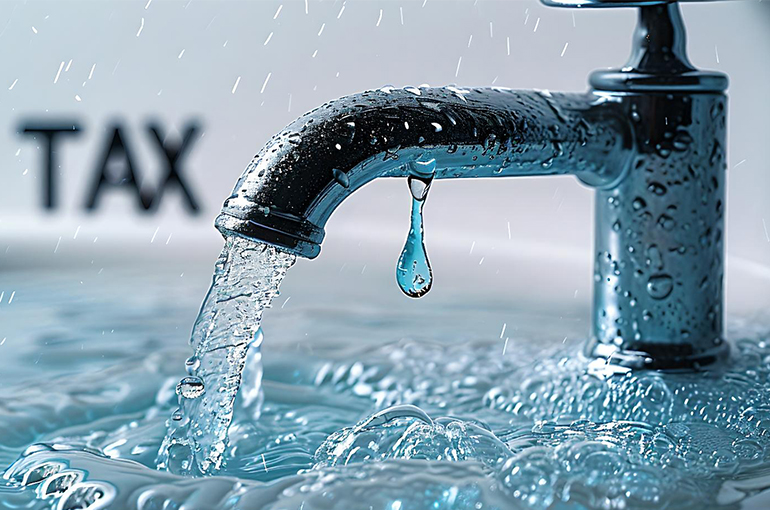 China to Fully Implement Water Resource Tax Nationwide From December
China to Fully Implement Water Resource Tax Nationwide From December(Yicai) Oct. 16 -- China will start levying a water tax across the country from December to protect water resources, replacing the existing water resource fees.
With a handful of exceptions, entities and individuals that directly use surface water or groundwater will be required to pay the tax, a notice jointly issued by the Ministry of Finance, the State Taxation Administration, and the Ministry of Water Resources said yesterday.
The tax will generally be calculated based on the amount of water extracted, multiplied by the applicable tax rate, with the exact rate set by each of China's 31 provincial-level regions. But the central government has set the minimum average tax rate for each province, including no less than 10 Chinese cents to CNY1.60 (1 US cent to 22 US cents) per cubic meter for surface water and 20 Chinese cents to CNY4 per cbm for groundwater.
Water scarcity is a significant issue in China. The country’s per capita water resources are only about one-third of the global average, and water distribution is highly uneven, with many regions experiencing severe shortages. Sixteen provincial-level regions face water resource risks, with water deficiency at different levels in 300 cities.
The new tax is part of broader efforts to address these challenges. China began trialing it in 10 provincial-level regions in July 2016, including Beijing, Hebei, and Shandong, according to a tax policy official in the finance ministry.
These areas made notable achievements in curbing groundwater over-extraction, changing water usage patterns, promoting promoting water-saving reforms, and regulating water extraction behavior, the person added.
Water consumption per CNY10,000 (USD1,405) of gross domestic product in Hebei, for example, has dropped 40 percent over the past eight years, with underground water extraction down 44 percent, the official noted.
Full implementation of the tax will help raise awareness and motivation among businesses and other entities to conserve water, encouraging businesses to improve water efficiency through steps to save water and technological innovations, the person said. This will promote the conservation, efficient use, and recycling of water resources as well as the protection of the ecological environment, he said.
The tax will benefit companies that prioritize water-saving and have been continuously improving conservation and efficiency, while others may face increased costs, said Bai Yanfeng, a professor at the Central University of Finance and Economics' School of Public Finance and Taxation.
The reform is being implemented smoothly, and the public's water usage is not expected to change significantly, so the overall water burden will likely remain steady, he pointed out.
Editors: Zhang Yushuo, Martin Kadiev